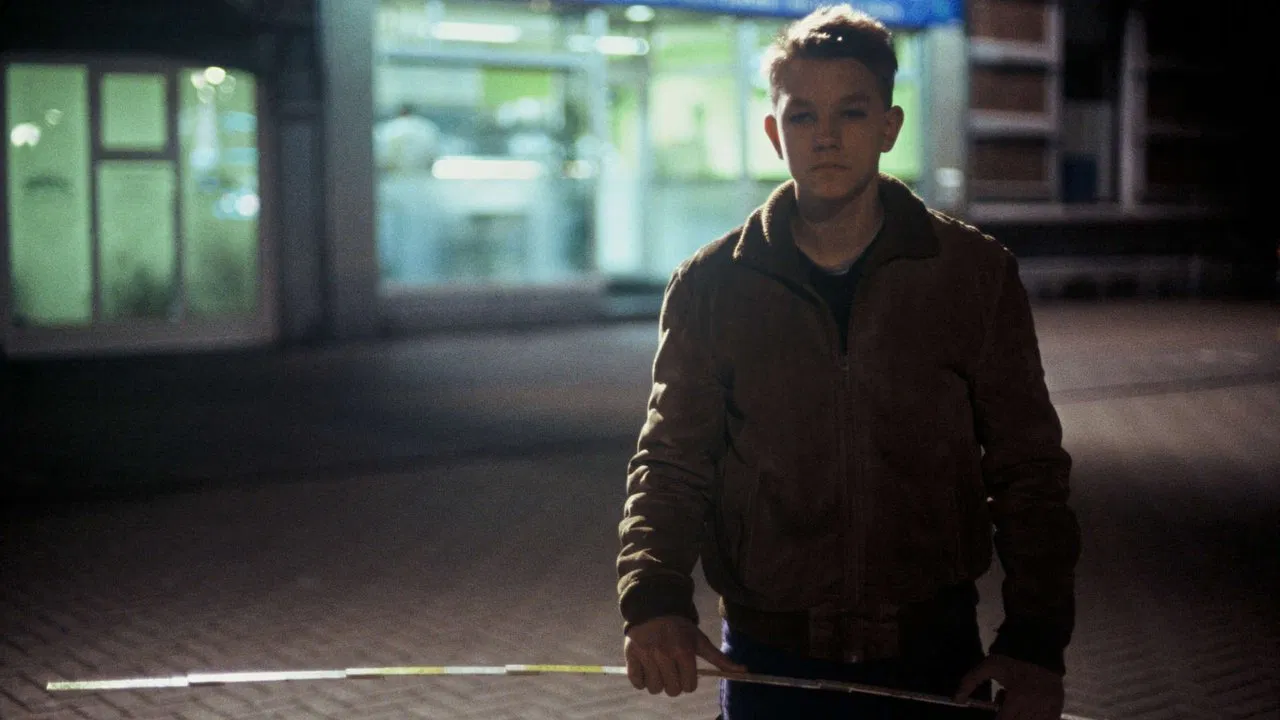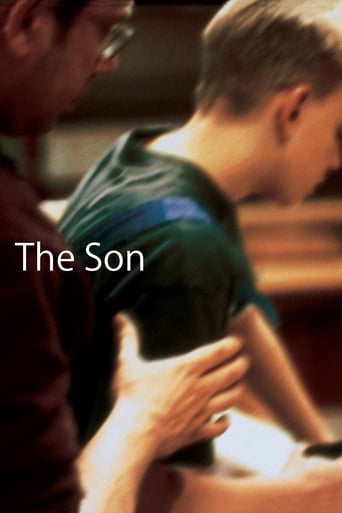MoPoshy
Absolutely brilliant
PiraBit
if their story seems completely bonkers, almost like a feverish work of fiction, you ain't heard nothing yet.
Jemima
It's a movie as timely as it is provocative and amazingly, for much of its running time, it is weirdly funny.
Cissy Évelyne
It really made me laugh, but for some moments I was tearing up because I could relate so much.
lasttimeisaw
With a stalking hand-held camera relentlessly recording the kitchen-sink execution of a hyperbolical subject matter - retribution and redemption, Dardenne brothers downplay the excessive theatricality and map out a distinctively mundane presentation of the most authentic and accurate learning curve about tackling unbearable ire and haunting guilt, from which derives a sensitively tangible proxy-father-and-son bond. Olivier (Gourmet), an instructor in a teenager rehab center voluntarily takes on Francis (Marinne), the murderer of his infant son 5 years ago, as his apprentice, who is 16 now and unbeknownst of his instructor's real identity, so is the audience until halfway through when Olivier converses with his newly-pregnant ex-wife (Soupart), and from then on, what is left for viewers is to wait quietly and see how the bubble bursts, an inevitable confrontation will show the true color of both. But cleverly, Dardenne brothers never bother to stoke the climax with usual filmic antics, all the tension has been heaped up simultaneously with the everyday proceeding, and very much inked with ingenious details (such as Olivier refuses to pay for Francis' lunch money when they grab a bite in a cafeteria), also, without the intruding music scores, THE SON is a cinematic fruit of its own kind, austere, voyeuristic and persistent, yet can easily generate the power of catharsis and has no worries about overkill. The ending has a great aftertaste if a first-timer may feel abrupt to a certain extent, there is a tacit understanding for both characters after the grapple, it is subtle and sensible, we don't know if they can reconcile since the scenario would not seemingly exist in a real world, but thanks to the creators' mind's eyes, it is no doubt a heartfelt film lays bare the universal sense of empathy in such a dire situation. Gourmet and Marinne form an interesting pair with an invisible barrier between them, there is no showy parts but still a demanding job for both actors, an epitome in Dardenne brothers' oeuvres, Gourmet immerse himself fully into the character-building, mostly by body languages, but 2002 is a strong year for my film-viewing, so he nearly cracks into my Top 10 list, but Dardenne brothers again strut into the top tier and my personal appreciation for them is continuing ascending (after THE CHILD 2005, 7/10; LORNA'S SILENCE 2008, 8/10 and THE KID WITH A BIKE 2011, 8/10)!
flygirl_ca
This film, full of nuance and virtually no dialogue, is a good example of a European "art film." If you're looking for blockbuster action and a fast pace, keep walking. You won't find it here. If you're looking for a film that explores forgiveness, redemption and psychological tension, have a seat."The Son" can be painfully slow: dim setting, dark clothing, no dialogue. It leaves you wondering, "What's the point?" And, then, POW, you discover the raison d'être and everything falls into place. It is this very progression from WTF to illumination that makes this film a masterpiece. It's easy to see why "The Son" won multiple film festival awards in 2002, and it is most certainly worth your time.And, by the way, the acting by Olivier Gourmet and Morgan Marinne is sublime. I haven't seen any thing like it in quite awhile - and I watch a lot of films. Also, the cinematography is extraordinary with special attention to lighting. If you're a foreign film buff, grab this DVD.
paul2001sw-1
How do you make a film to capture the mindset of a stalker; or of an uncertain individual, sizing up an unknown enemy? The Dardenne brothers' solution in this movie is to shoot almost the entire film over the shoulder of its principal protagonist, giving the audience the same view, the same sideways glances and stolen observations, as the character. It's effective, but it doesn't make this the easiest movie to watch: at times it feels that everything you want to see is deliberately left out of shot. A film about a pair of fairly non-communicative people, it also contains almost no expository dialogue, so we are left to guess what each of them are feeling from their actions: in fact, as well as being terse or even silent, the characters are arguably people who don't really know what to feel any more. The film is thus an effective look at the bleakness of life in extreme circumstances, but again, this doesn't make it easy to relate to. The unusual method does bring some dividends: at first, it one thinks this will be a movie about a pervert, a mistake that owes everything to clichéd thinking and nothing to surprising honesty the directors and cast bring to this movie. In a sense, it's a film about the possibility of revenge, but with a more awkward, truthful and ultimately humane take on this notion than any you are likely to find in Hollywood. It's an interesting film, therefore, and deserving of praise; but not particularly fun to see.
WilliamCKH
The Son is a movie about forgiveness, and how the very act of forgiving propels you forward as a human being. And to not only forgive the person who took away your son, but to become a guardian, a teacher to that person is an act of grace. Olivier exhibits this grace throughout the movie, but it is a grace that is not evident by just watching him on a day to day basis. You have have to follow him, listen to him, be with him constantly and understand his circumstances to realize this. I suppose, in a way, that many people possess this grace, but its hard to find it in them if you can't follow them around with a camera. Olivier, on the surface, would not seem like a very interesting person if you saw him on the street, or worked with him on a daily basis, and the boy seems like a dolt, but this movie makes them so interesting, so compassionate, not as characters, but as real people. It teaches you to look beneath the surface of things, of human beings, and if you look hard enough, you'll find beauty everywhere.

